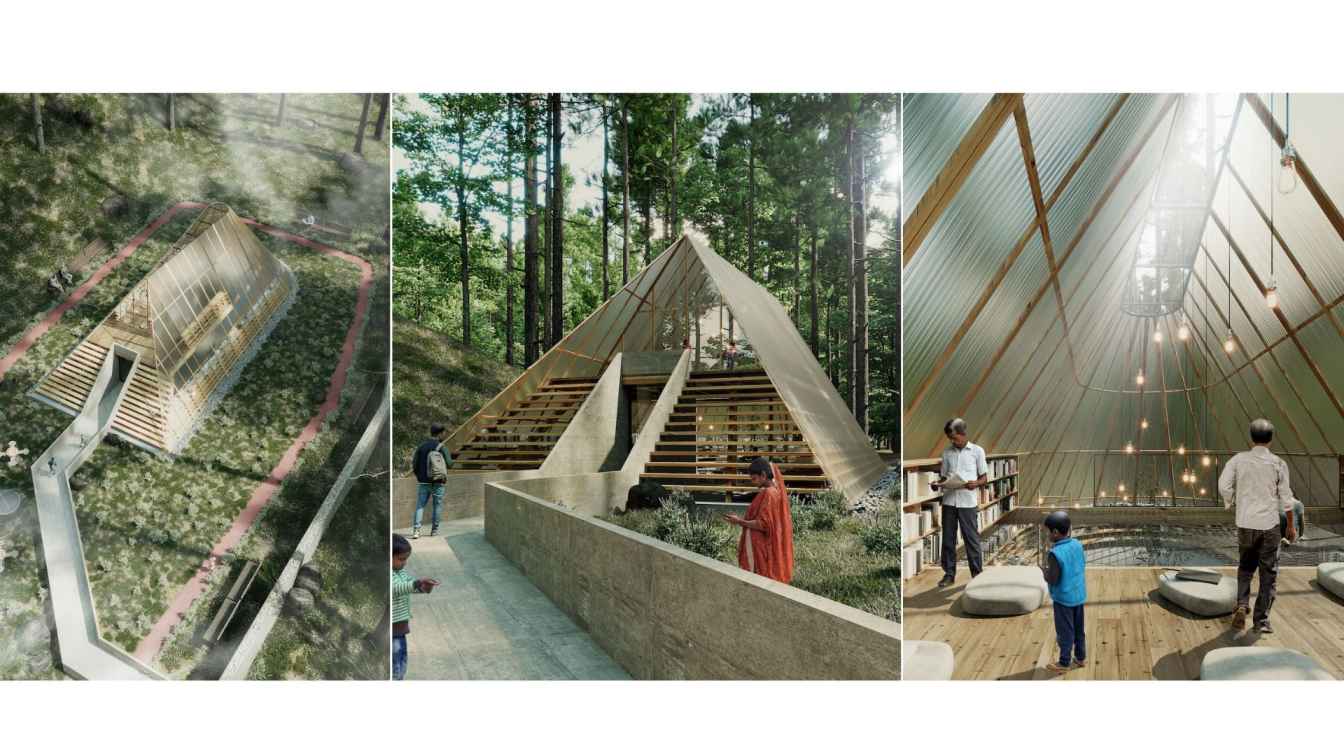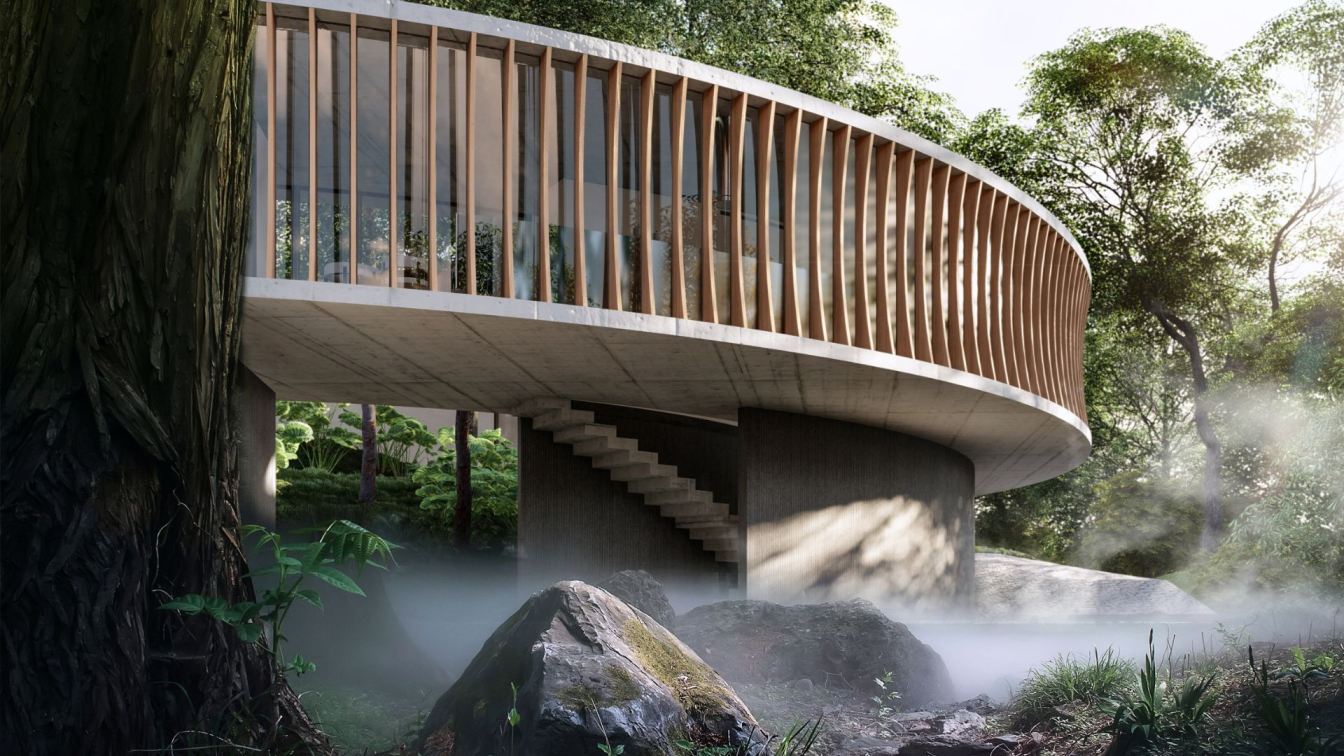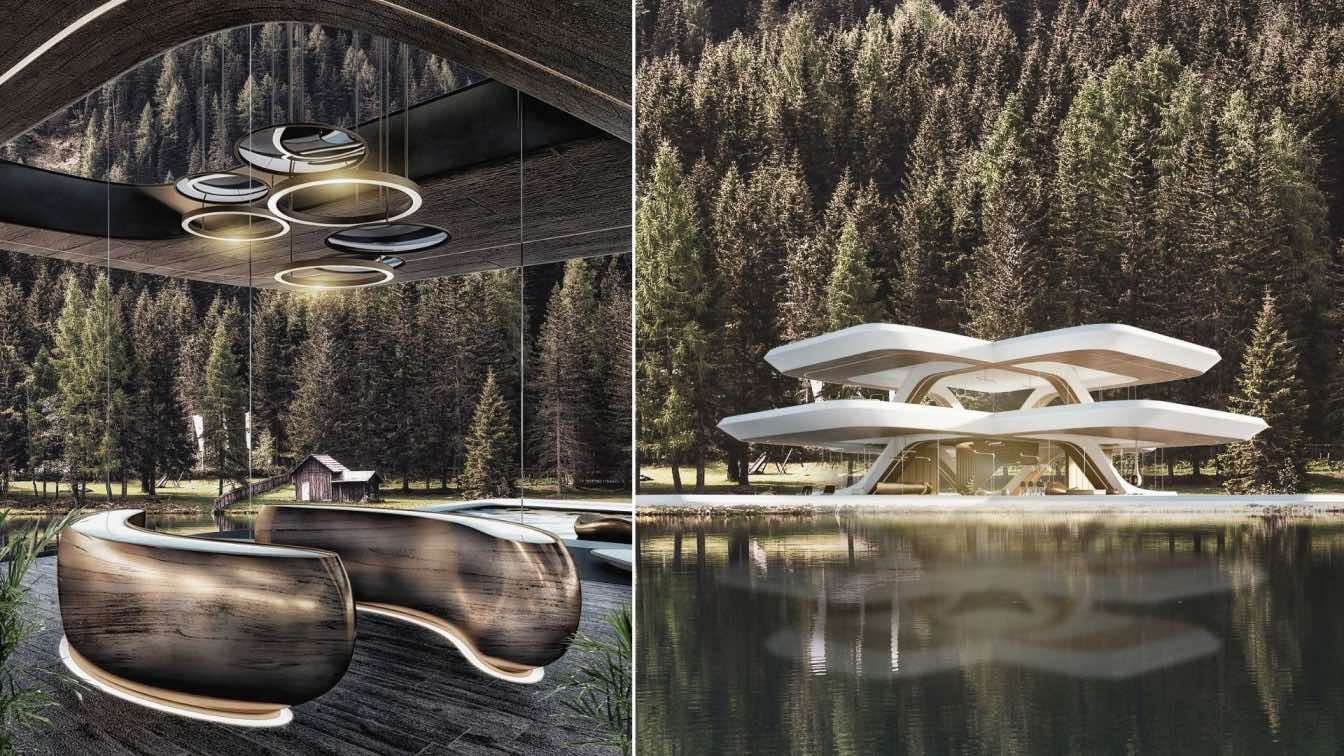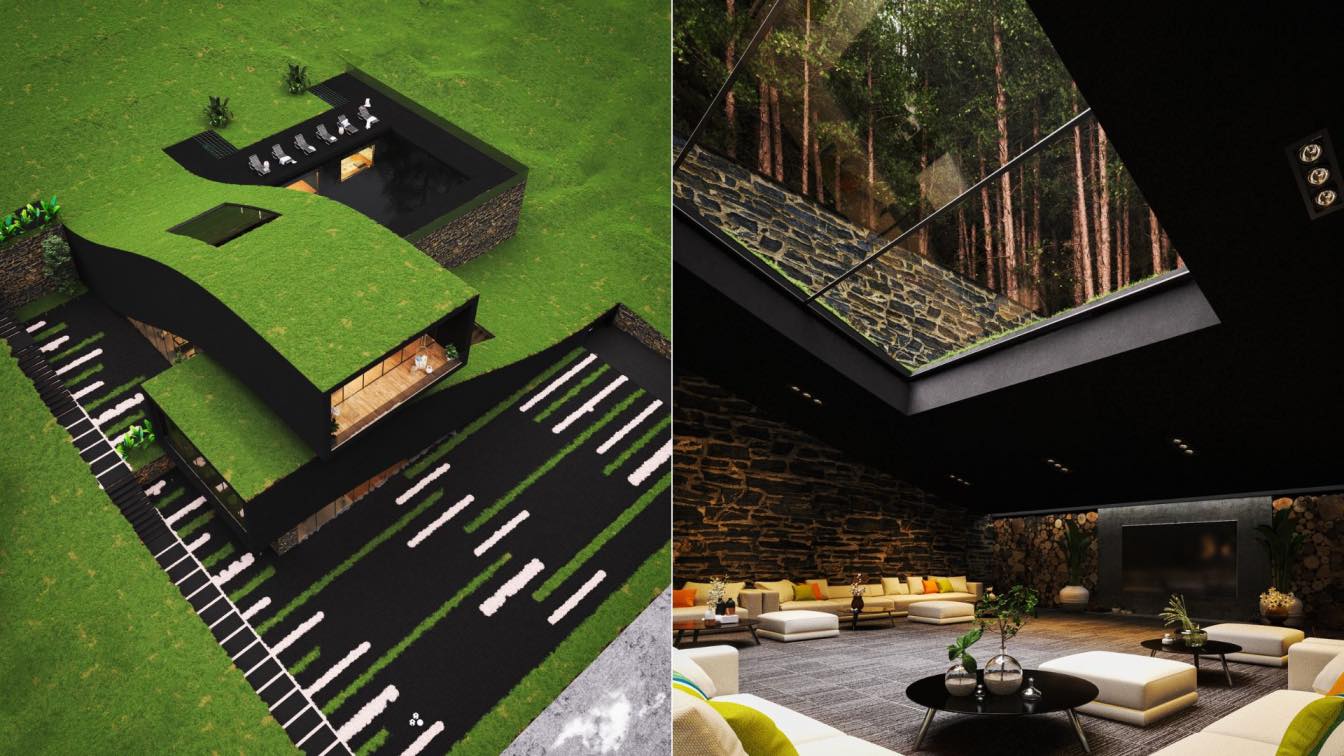inspatia: The Tirchakhet Community Library is envisioned as a sustainable prototype that blends architecture with nature, fostering resilience, ecological restoration, and community engagement. Located in Bhowali, Nainital, the project responds to the region’s cool, humid climate through passive strategies and context-sensitive design.
The building’s Southeast-South orientation and recycled polycarbonate façade optimize natural daylight and passive heating, reducing artificial lighting demands by 80%. IoT-enabled skylights and operable openings ensure continuous airflow, minimizing reliance on mechanical systems. Reused concrete flooring functions as thermal mass, regulating indoor temperatures, while solar radiant floor heating with solar-powered heat pumps provides additional efficiency during extreme cold.
A network of southwest-facing adjustable solar panels powers the building’s core systems, minimizing grid dependency. Rainwater harvesting and bioinfiltration zones manage stormwater naturally, recharge groundwater, and support an integrated landscape of native vegetation including Himalayan Blue Pine, Banj Oak, and Rhododendron arboreum, enhancing biodiversity and soil stability.

The library’s form is derived from the region’s vernacular A-frame architecture, reinterpreted with locally sourced pine wood and reused materials, reflecting local craftsmanship while ensuring low embodied carbon. Interior spaces are organized to blur boundaries between the built and the natural, with integrated green pockets, bioinfiltration gardens, and permeable pathways creating a dialogue between architecture and landscape.
Designed through a participatory process, the project incorporates community aspirations for a space closely connected to nature, with open, inviting areas for learning, cultural exchange, and recreation. Spaces like The Exchange, The Forum, and The Net Loft offer flexibility, fostering both individual study and communal interaction.
Rooted in cultural sensitivity and environmental responsibility, the Tirchakhet Community Library stands as a model for future public spaces - a resilient, low-impact architecture that nurtures both its community and the environment it inhabits.













